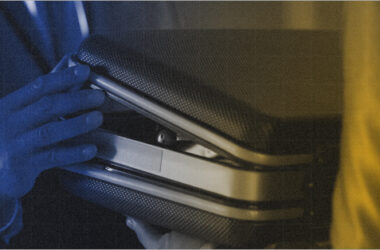Product Liability Insurance is a type of insurance coverage that protects businesses or individuals who manufacture, distribute, or sell products from financial losses resulting from legal claims related to the safety or quality of those products. It is designed to cover the costs associated with defending against product liability lawsuits and paying for any damages awarded to injured parties.
Unlike what most people perceive, Product Liability Insurance is not just limited to manufacturers. In fact, it can be important for any company involved in the supply chain of a product, including those that sell, distribute, or design products. It is also of utmost value to small companies or startups that are just starting out in the product industry, especially because legal expenses can be financially crippling for small businesses.
In 2021, the global liability insurance market had a valuation of approximately $252.34 billion. Projections indicate that this market is expected to expand significantly and reach a value of approximately $432.81 billion by the year 2031. This growth is anticipated to occur at a Compound Annual Growth Rate (CAGR) of around 5.7% from 2022 to 2031.
What Does it Cover?
Product Liability Insurance typically covers legal defense costs, settlements, and judgments related to product-related claims, which can be substantial. It helps protect a company’s financial well-being in case of product-related issues or accidents.
It’s essential for small businesses to carefully assess their specific risks and consult with insurance professionals to determine the appropriate level of coverage. This can vary widely depending on factors like the type of products, industry standards, and the company’s size and financial resources.
When should you Consider Product Liability Insurance?
Here are some factors to consider when determining if you need Product Liability Insurance:
1. Type of Business: If your business designs, manufactures, distributes, or sells physical products, you are at risk of being held liable for any injuries or property damage caused by those products. This includes businesses involved in making or handling consumer goods, electronics, toys, machinery, food products, and more.
2. Business Size: The size of your business does not necessarily exempt you from needing Product Insurance. Small and large businesses alike can face product liability claims.
3. Product Complexity: If your products are complex or have the potential for defects that could harm consumers or property, the need for Product Insurance is even more critical.
4. Business Name and Branding: If your business’s name is associated with the product, you could be held responsible for any issues with that product, even if you didn’t manufacture it. Having your brand on a product creates potential liability.
5. Modifications and Repairs: If your business repairs, refurbishes, or makes modifications to products, you may be held liable for any issues that arise from those modifications.
6. Importing Products: If you import products from outside the European Union, you can be held liable for defects or issues with those products, especially if the manufacturer is outside the EU, making it difficult to hold them accountable.
7. Difficulty Identifying the Manufacturer: If you cannot identify the product’s manufacturer or if the manufacturer has gone out of business, you may still be held liable for any problems with the product.
Given these considerations, if your business is involved in any aspect of the product’s lifecycle, including design, manufacturing, distribution, branding, or repair, you should seriously consider obtaining Product Liability Insurance.
What does Product Liability Insurance Cover?
Personal Injuries: Product Insurance covers the cost of compensation for personal injuries caused by your faulty product. This includes injuries that occur when a product malfunctions, breaks, or is otherwise defective and causes harm to the user.
Property Damage: It also covers the loss of or damage to property caused by your faulty product. If a defective product damages a person’s property, such as a home or vehicle, the insurance can help cover the costs associated with repairing or replacing the damaged property.
Unforeseeable Circumstances: Product Insurance can provide coverage for unforeseeable circumstances, such as product faults that your quality control system could not identify. This is important because not all defects can be anticipated or prevented.
What Product Liability Insurance May Not Cover?
1. Faulty Workmanship: It typically does not cover faulty products resulting from bad workmanship or poor craftsmanship in the manufacturing process. If the product defect is a result of errors in production or assembly, it may not be covered.
2. Financial Losses: Product Insurance may not cover financial losses incurred by a business or individual due to your faulty product. It is primarily focused on bodily injury and property damage claims.
3. Faulty Products on Receipt: You can show that the products were faulty when they were supplied to you by the manufacturer.
4. Safety Instructions and Warnings: You provided customers with adequate safety instructions and warnings about the proper use of the product and potential risks or misuse.
5. Return of Faulty Goods: You included terms in your agreements for the return of faulty goods to the manufacturer, demonstrating your commitment to resolving issues with defective products.
6. Supply Contract Compliance: Your supply contract with the manufacturer covers product safety, quality control, returns,
Impact of Product Liability Insurance on Small Businesses
Financial Protection: It protects a business from various risks, including injuries caused to others due to business operations, offenses like wrongful entry and slander, and legal liability for offenses such as copyright violations by the marketing division. It also covers investigation and attorney expenses, as well as medical expenses in case of injuries. This protection helps businesses avoid unnecessary monetary losses and ensures a safe future for their operations.
Cost Savings: Liability insurance prevents the insured from having to pay out of pocket for damages caused by their actions. For example, in a car accident, liability insurance covers the damages to the other party’s vehicle, medical bills, and other costs, saving the insured from financial risks. This cost-saving aspect is a significant driver for the growth of the liability insurance market.
Lack of Awareness: Many consumers lack knowledge and awareness about liability insurance. While they may be familiar with life insurance and general insurance policies, liability insurance is not as well-known. This lack of understanding and awareness about liability insurance coverage is a major barrier to the growth of the liability insurance market. Efforts are needed to bridge these knowledge gaps and educate consumers about the benefits of liability insurance.
In the Nutshell
In conclusion, Product Liability Insurance for small businesses should not be overlooked. The findings of this survey underscore the importance of prioritizing product safety, staying informed about regulations, and considering Product Liability Insurance as a safeguard against potential liabilities. While product safety measures can reduce the risk of claims, having insurance in place can provide financial protection in case of unforeseen legal challenges, ensuring the long-term viability and reputation of small businesses.








